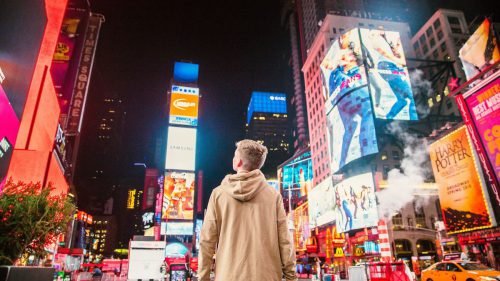

BreakPoint
Law as Lobby
Dayton Claudio is an artist with an agenda. Like many contemporary artists, his paintings are designed to shock and offend. But Claudio uses them for another purpose, too: to provoke lawsuits. His strategy is to exhibit his art in government buildings, taking advantage of a law that allows the use of federal space for cultural and educational purposes. When his paintings are removed--as they inevitably are--he sues. "I'm forcing the First Amendment issue," Claudio boasts. He describes his activities as a "public service," and he's mustered a battalion of lawyers to defend his right to free expression. Claudio started his crusade in Sacramento, California, where he exhibited an enormous painting of a partially nude woman, entitled "Madonna." Officials ordered the painting to be removed. But Claudio nabbed one of his ever-handy lawyers, and the officials backed down. Then Claudio packed his paintbrushes and moved to San Francisco. This time he set up two paintings, one of them a nude. Once again the paintings were removed. Once again Claudio's lawyers made their appearance and officials relented. He struck next in Raleigh, North Carolina, with a painting that depicted a nude woman, a fetus, and a coathanger. Within minutes officials had the painting covered, but Claudio responded with heavy legal firepower. By now he had attracted to his side several big-name attorneys and the local chapter of the ACLU. The tug of war between lawyers and government officials is still going on as we speak. Claudio's latest target was a government building right in the heart of the nation's capital. This time the painting was entitled "Sex Without a Cause" and depicted an American flag, a nude woman, various intimate body parts, and a scattering of contraceptive devices. The painting hung for about 30 seconds before the building manager told Claudio to take it down. His lawyers will appeal the decision. As a lawyer myself, I see in this saga a disturbing trend within the legal profession to turn law into social activism. Until recently, you see, a lawsuit was regarded as a last resort: a costly process that took time away from productive work. There were long-standing rules against what was called "barratry," which means aggressively stirring up litigation. But today many lawyers see lawsuits as a positive good. They have joined forces with trendy activists and are using lawsuits to change society, to advance their personal ideology. Listen to the words of one lawyer: "We are freedom fighters. We all consider ourselves to be social engineers. We are crusaders of good." No wonder Claudio had no difficulty finding lawyers to serve in his political cause. This misuse of the legal system could be countered with a simple policy change: Those who clog up the courts with spurious lawsuits could be forced to pay the costs, as they do in several European countries. That would be one good way to slow down the rush to the courts by ideologically motivated folks like Dayton Claudio. One of the most precious legacies of Christian culture is the rule of law. Today our nation is in danger of losing that legacy and succumbing instead to the rule of interest groups--who want to use the courts to enforce their ideology.
07/31/92















